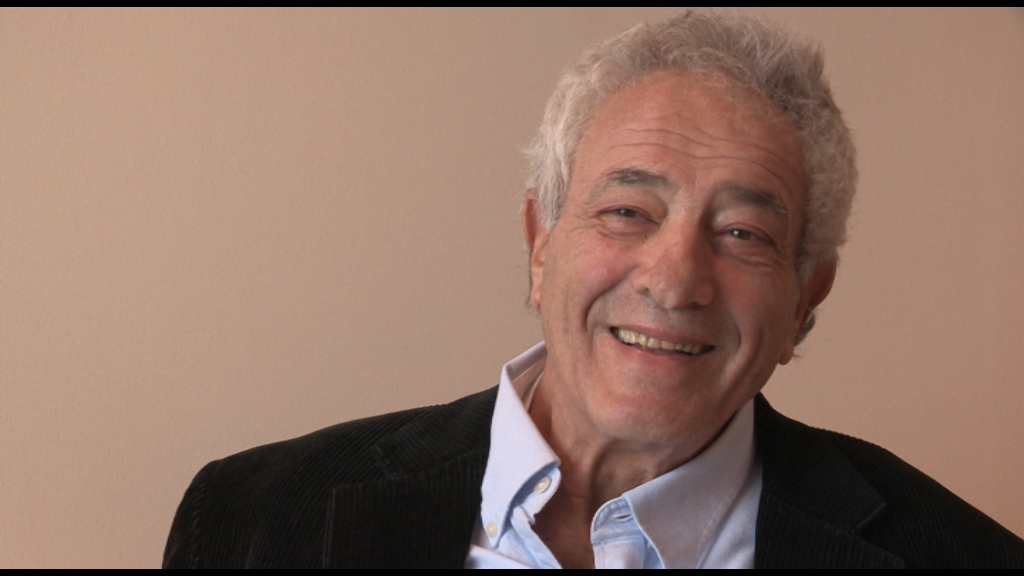NEXT STORY

On being a 'great' publisher
RELATED STORIES

NEXT STORY

On being a 'great' publisher
RELATED STORIES


|
Views | Duration | |
|---|---|---|---|
| 51. Getting a blasting from Ron Blass | 33 | 07:27 | |
| 52. Proud to be British | 23 | 02:25 | |
| 53. Publishing becomes political | 12 | 04:16 | |
| 54. Listening to the women in my life | 26 | 04:37 | |
| 55. Missing England | 31 | 06:57 | |
| 56. The future of book publishing | 36 | 02:06 | |
| 57. How to be a successful publisher | 22 | 03:14 | |
| 58. On being a 'great' publisher | 26 | 02:05 | |
| 59. My policy is to have no formal policy | 16 | 02:06 | |
| 60. Britain’s cultural imperialism | 20 | 03:15 |


[Q] Can you say a bit about how… how now do you be a publisher, you, I mean with Duckworth? I need to know what you do really and how you decide…
Well, you do it… you do it very modestly. You do it very modestly, you take the view that whether you're playing cricket or baseball you get so many turns at bat, and you get just as many turns at bat whether you're big or small. And you only need to hit, I think the phrase is hit for a century, or something like that. You only have to do that once in a while, and you only have to hit a home run once in a while, and depending on how small you are, that much smaller do you need to.
And if you have some good connections as a publisher, as an editor in Britain and the US, you will get books offered to you that the large companies have turned down. You will unlikely have obvious best-sellers, but some of the books that large companies turn down are sometimes overlooked – no pun intended – and you can make something of them. If they don't succeed well, they didn't cost a fortune and they don't sink your enterprise, so you're there to fight again another day, as they say… as Kipling said? I don't know, but as somebody said.
So, I think it's appropriate for an older chap, an older guy to run a company that is – or companies – in Britain and America that is… modest and not too risky. I'm not trying to make it big, I do think as long as we have a capitalist system you have to make money to go on, so the enterprise has to do well enough so that you can go on, but making money is not the main thrust.
And I have to say that even in running Penguin, although Pearson may have thought that what I wanted to do was to make Penguin viable in the first instance, it really wasn't. I thought that if you could publish well, which Penguin started to do again, and have good business principles it would make money. You don't have to start with the notion of making money first. Making money will come your way if you have good editors and you publish well, you keep the costs reasonable. It will come your way, and it did. You don't wake up in the morning and say I'm going to make some more money now.
Peter Mayer (1936-2018) was an American independent publisher who was president of The Overlook Press/Peter Mayer Publishers, Inc, a New York-based publishing company he founded with his father in 1971. At the time of Overlook's founding, Mayer was head of Avon Books, a large New York-based paperback publisher. There, he successfully launched the trade paperback as a viable alternative to mass market and hardcover formats. From 1978 to 1996 he was CEO of Penguin Books, where he introduced a flexible style in editorial, marketing, and production. More recently, Mayer had financially revived both Ardis, a publisher of Russian literature in English, and Duckworth, an independent publishing house in the UK.
Title: How to be a successful publisher
Listeners: Christopher Sykes
Christopher Sykes is an independent documentary producer who has made a number of films about science and scientists for BBC TV, Channel Four, and PBS.
Tags: Penguin Books
Duration: 3 minutes, 14 seconds
Date story recorded: September 2014-January 2015
Date story went live: 12 November 2015